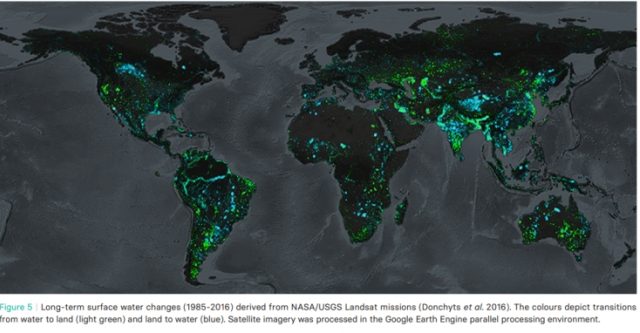A white paper on pathways towards democratisation of hydro-environment observations and data
Water-related problems affect several billion people’s lives and represent an annual challenge assessed at multitrillion euros, which substantiates their core role in the UN Sustainable Development Goals. Preventing direct and indirect impacts associated with water excess or water scarcity events requires expert judgement based on reliable information. Therefore, observations and measurements are fundamental prerequisites for making scientific progress.

Community vision on future pathways
In a new IAHR white paper a broad spectrum of experts, amongst which Gennadii Donchyts and Antonio Moreno-Rodenas from Deltares, provides a community vision on future pathways aimed at leveraging conventional and emerging methods to facilitate access to hydro-environment observations.
Gennadii Donchyts (co-author and expert geospatial data analysis at Deltares): “Deltares constantly contributes to water information sharing by making its tools freely available and providing advanced water analytics derived from multiple sources, including local expertise, best water management practices, and timely information derived from satellite imagery”.
Antonio Moreno-Rodenas (co-author and environmental hydraulics expert at Deltares): “We believe that AI and distributed sensing systems allow to monitor an increasing number of new hydro-ecological variables. At Deltares we are currently working with this technology to observe and measure emerging bio-hazards in the hydraulic environment and assist in the operation of critical infrastructure like reservoirs, power plants or sewer systems.”
Trend towards open-science
The current policy trend towards open-science (open-data repositories, open-software communities, open-access publications), is an opportunity for data democratization. However, it must be affordable and sustained by trusted researchers and scientific institutions in order for it to become a real instrument of progress towards common access. Furthermore, the easy access to information may contribute to the false perception of assurance. Experts capable of interpreting the data and aware of their limitations, should always be involved to avoid ill-informed governance and policy-making processes.
About IAHR White Papers
To catalyse thinking, inspire debate and better apply scientific knowledge to global water problems, the IAHR White Papers seek to reveal complex and emerging issues in Hydro-Environment and Engineering Research. They are written for researchers, engineers, policy-makers and all those who are interested in the latest for a better water future.
